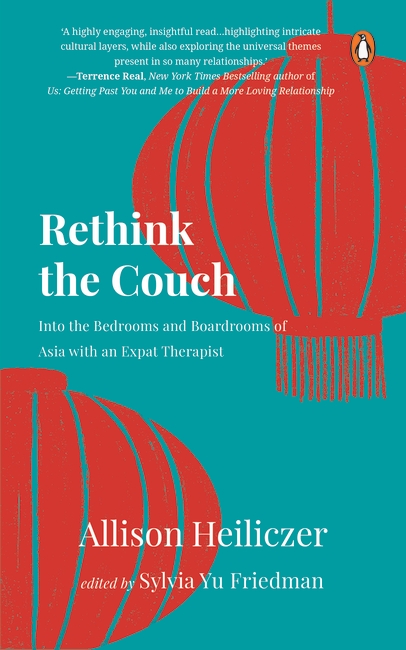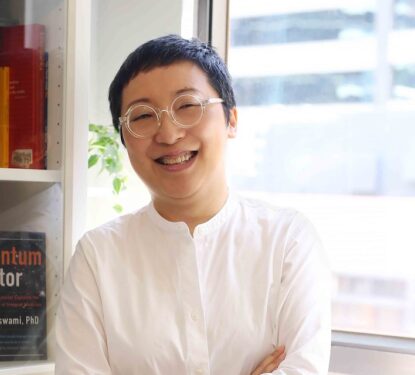If you’ve ever wondered whether therapy might be helpful for you, but were afraid to take that all-important first step into a therapist’s office, you might want to pick up “Rethink the Couch” by therapist Allison Heiliczer.
“Rethink the Couch” is a first-hand account of an expatriate therapist from New York. Heiliczer has seen hundreds of clients since setting up her practice in Asia more than a decade ago. In fact, she worked in Hong Kong in Central’s OT&P clinic for many years, and now lives and works in Singapore.
In each chapter, she leads with a true (but anonymised) account of one of her patients: the businesswoman with a literal binder documenting and ranking her sexual conquests; the type-A banker who’s single and miserable after a lifetime of parental pressure to succeed; the engaged couple navigating a compensated dating revelation; the husband and wife who can barely stand to share a therapist’s couch, let alone a bed. Through these case studies, told with empathy and sensitivity, Heiliczer pulls back the curtain on the private lives of professionals in Asia, and in doing so, tackles wider social issues: loneliness, urban isolation, the impact of suicide on a family, workaholism, addiction – all issues that to some extent – likely touch each and every one of us.
Though the characters may seem outrageous at first, Heiliczer tells their stories with insight and nuance. They are all flawed to some extent, yes, but there are no heroes and villains here. Instead we learn about real people who are highly relatable and deeply human. We get to know Heiliczer too – how she thinks, how she reads the room and her client’s body language, adjusting her approach accordingly. She cares about her clients and genuinely wants the best for them, no matter how they may have behaved.
Read more: here’s where to you can try Gottmann Method of couple’s counselling in Hong Kong
Part-memoir, part meditation on mental health in Asia, Heiliczer gives the reader and engaging and accessible insight into the world of counselling through an Asian lens. Her perspective as a Westerner dealing with Asian clients allows her to compare and contrast Asian and Western societal norms, recognising the need to tailor her approach for her clients, many of whom place a different emphasis on family, the collective, and filial obligations compared to clients in the west.
Heiliczer considers these values carefully, allowing her clients to frame their sessions through the context of their cultural mores and personal values, rather than imposing western practices on them. In doing so, Heiliczer shows us that yes, you can take steps to protect your mental health in a way that also accommodates deeply-held cultural beliefs.
If you’ve always been curious about individual or therapy, “Rethink the Couch” is a great first step in demystifying the process. Entertaining, thought-provoking, empathetic and insightful, anyone interested in mental health and wellbeing in Asia should put it on their “to-read” list.








